
We believe that our unique position in the market allows us to drive meaningful positive change in the fashion industry by incorporating circularity principles at every stage of our product life cycle. A circular system is the long-term solution for the fashion industry where there is minimal or even no waste throughout the product life cycle. Therefore, we not only seek to incorporate circular design principles into the product we sell but we also commit to offer end of life solutions to customers which enable them to close the loop, especially where other mechanisms to do so are limited in our markets.
Our 2030 Circularity & Conscious Consumption targets demonstrate our commitment to transition to a more circular business model via responsible waste management, lower impact packaging use and driving supply and demand for more conscious fashion:
95%
Waste of our operations diverted from disposal by reuse or recycling stream
100%
Product & delivery packaging will be meeting at least one circular principle
0.01%
Sold units from fashion assortment made in line with circular criteria (pre-loved, repaired, upcycled)
1%
Units returned through recovery program over sold units
Our 2024 Performance
86.6%
Product & delivery packaging* will be meeting at least one circular principle
(*refers to delivery and internal packaging)
81.9%
Waste of our operations diverted from disposal by reuse or recycling streams
1%
Units returned through recovery program over sold units
RESPONSIBLE WASTE MANAGEMENT
As a responsible company, we try to minimise the waste we generate and pursue solutions to divert our waste from disposal. Packaging from our suppliers and customer returns - such as cardboard boxes, delivery mailers, polybags and stretch film - accounted for the majority of waste produced by our operations, with the remaining fraction being food waste and other general waste.
This year, 81.9% of our waste from operations was diverted from landfill; where they were sent for recycling and upcycling (our returned mailers are compressed and turned into furniture). We will continue to seek solutions for the remaining not-yet-recyclable waste, with the aim of diverting 95% of waste in our operations by 2030.
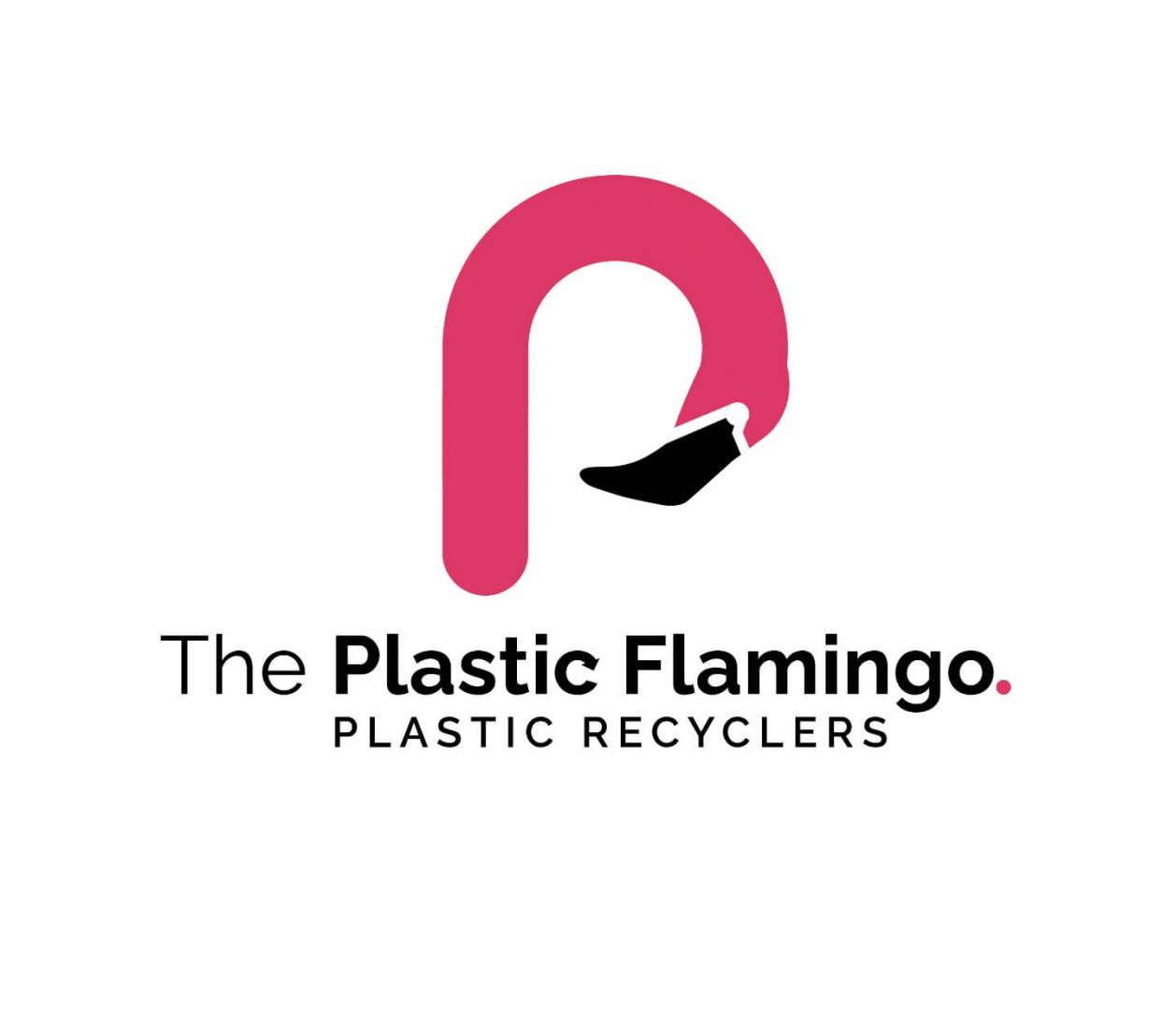
CASE STUDY
Partnering With The Plaf For Plastic Recycling In The Philippines
In the Philippines, a country identified as one of the top three polluters of plastic waste going into our oceans, we have partnered with The Plastic Flamingo (The Plaf) to tackle plastic pollution, who collects our plastic waste for upcycling. The Plaf produces “eco-lumber”, such as posts, planks and “eco-boards” used to build outdoor furniture, fencing or decking. The best part; the eco-boards can be recycled back through the same process of creating it, making it virtually a never-ending resource.
LOWER IMPACT PACKAGING
At ZALORA, we recognise how important it is to our customers that ZALORA takes greater steps in innovating lower impact packaging at the point of production, especially in countries where our customers do not have easy access to recycling facilities. To contribute to building a circular economy for packaging, we aim to transition our packaging to be made from less environmentally impactful materials, and where possible, eliminate packaging materials altogether.
In 2024, 86.6% of our directly-procured packaging was made of recycled or responsibly sourced materials. Our carton boxes are made of certified recycled cardboard and expanded the use of delivery flyers containing at least 95% certified recycled materials in all our markets, as well as polybags (clear sleeves used to protect products in warehouses and transit) with 100% recycled plastic. As we celebrate these milestones, we will continue to work with our regional teams to identify suppliers who can provide us with quality, certified packaging to achieve our 2030 target of having 100% of our directly purchased packaging to be made from lower impact materials.
Noting that the market for lower impact packaging is still emerging in Southeast Asia, we continue to raise awareness to our own-brand suppliers on the importance of removing unnecessary packaging and the need to transition to packaging containing recycled or responsibly sourced materials. To accelerate our suppliers’ transition, we have identified vendors who would be able to provide our own-brand suppliers with responsibly sourced carton boxes and swing tags. This adds to the repertoire of lower impact packaging that will be used in our own-brands.
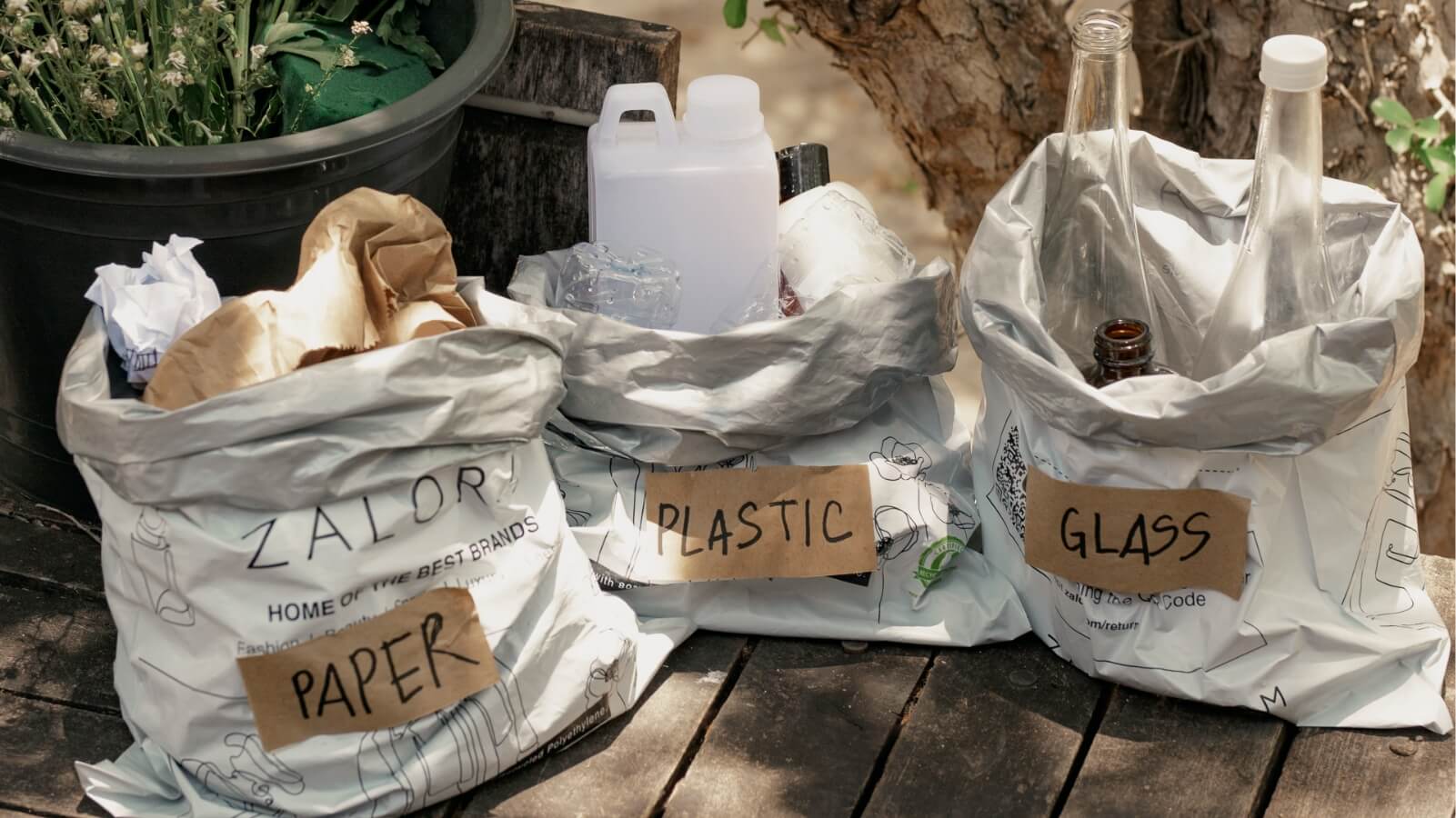
2024 KEY HIGHLIGHTS
-
100% use of certified responsibly sourced cardboard boxes
-
100% use of certified responsibly sourced paper and honeycomb fillers, replacing bubble wraps
-
100% delivery mailers incorporate at least 95% recycled materials
-
100% polybags made of 100% recycled plastic
#MakeADifference
By Recycling Your Packaging Right
As we work towards making a positive impact on the planet and people, we hope to bring our customers along on the journey! This includes helping you find responsible disposal methods for your packaging waste.
ZALORA’s packaging, such as cardboard boxes, paper fillers and mailer plastic bags, can be recycled through most municipal plastics and paper recycling centers. So try not to throw it away and put it in the recycle bin.
Through our collective efforts, we can:
Reduce the overall amount of waste produced; and
Extend the life cycle of materials which can be reused, repurposed or recycled, and support a circular economy.
Every effort counts and makes a difference!
If You Are Living In Singapore
What’s The Current Situation?
Of the 1.6 million tonnes of domestic waste disposed of in 2018, one-third was from packaging. Furthermore, while more than half of the packaging waste was made of plastic, only 4% was recycled. Waste that is not recycled is either sent to a waste-to-energy plant to be incinerated before being landfilled or sent directly to the landfill.
With the ever-increasing popularity of e-commerce in Singapore, packaging waste is contributing to Singapore’s growing waste challenge. At the current rate of waste growth, Semakau Landfill - Singapore’s only landfill - will run out of space by 2035.
How Can You Help?
While industry plays an important role in reducing the amount of packaging used, you as the end user of packaging can contribute too! By segregating your domestic waste and ensuring that your recyclables are uncontaminated and end up in the proper recycling bins, you can prevent recyclable waste from ending up in the landfill.
To make it easier for households to recycle, Singapore’s National Environmental Agency (NEA) has introduced a National Recycling Programme that ensures every HDB estate, private estate and landed properties have access to recycling bins and recycling collection services. Public housing developments launched after 2014 have dual chutes for refuse and recyclables on each floor.
If You Are Living In Taiwan
What’s The Current Situation?
Waste generated in Taiwan has been increasing over the years. Even with the Covid-19 pandemic and subsequent lockdown measures, municipal waste generated per capita only fell slightly from 1.144 kg/person/day in 2019 to 1.137 kg/person/day in 2020.
While Taiwan has a high overall recycling rate of 56% (as of 2019), this has in fact decreased from 60% in 2017. This means that a substantial portion of waste still gets incinerated and eventually sent to landfills, contributing to environmental pollution and climate change. To work towards achieving zero waste, the Environmental Protection Administration (EPA) has a policy that mandates people residing in Taiwan to purchase dedicated “City of Taipei” garbage bags to dispose of their general waste, while recycling is free, incentivising people to recycle more and produce less non-recyclable trash.
How Can You Help?
While industry plays an important role in reducing the amount of packaging used, you as the end user of packaging can contribute too! By properly segregating your domestic waste and ensuring that your recyclables are uncontaminated, you can prevent recyclable waste from ending up in the landfill. Producing less non-recyclable trash is also a win-win solution for you if you live in Taiwan, since that means that you will not have to pay more to obtain more garbage bags for general waste disposal.
If You Are Living In Hong Kong
What’s The Current Situation?
The Hong Kong government has ambitious targets to increase the recycling rate from 12% in 2019 to 55% by 2022. It also has the goal of reducing waste generated per capita to 0.8 kg/person/day by 2022. In land-scarce Hong Kong, these plans are important to limit the number of incineration plants that have to be built or landfills that have to be expanded to accommodate the growing amount of waste generated.
How Can You Help?
While industry plays an important role in reducing the amount of packaging used, you as the end user of packaging can contribute to achieving Hong Kong’s waste reduction and recycling goals too! By segregating your domestic waste and ensuring that your recyclables are uncontaminated and end up in the proper recycling bins, you can prevent recyclable waste from ending up in the landfill.
CUSTOMER ENGAGEMENT & CIRCULARITY SOLUTIONS

Circular Fashion Starts With Pre-Loved
Keeping products in use for as long as possible is the first step to transition to a circular economy. To extend the life of products and foster responsible consumption behaviours, we launched our Pre-Loved category of second-hand luxury fashion products in 2019. Initially focused on our women’s category, our Pre-Loved assortment was expanded into new segments including men and kidswear. ZALORA’s Pre-Loved category is now available in all markets.
In order to achieve our 2030 target and elevate fashion made in line with circular criteria, we will continue growing our Pre-Loved assortment with new partnerships, and provide customers with additional options to extend the life-cycle of quality products.
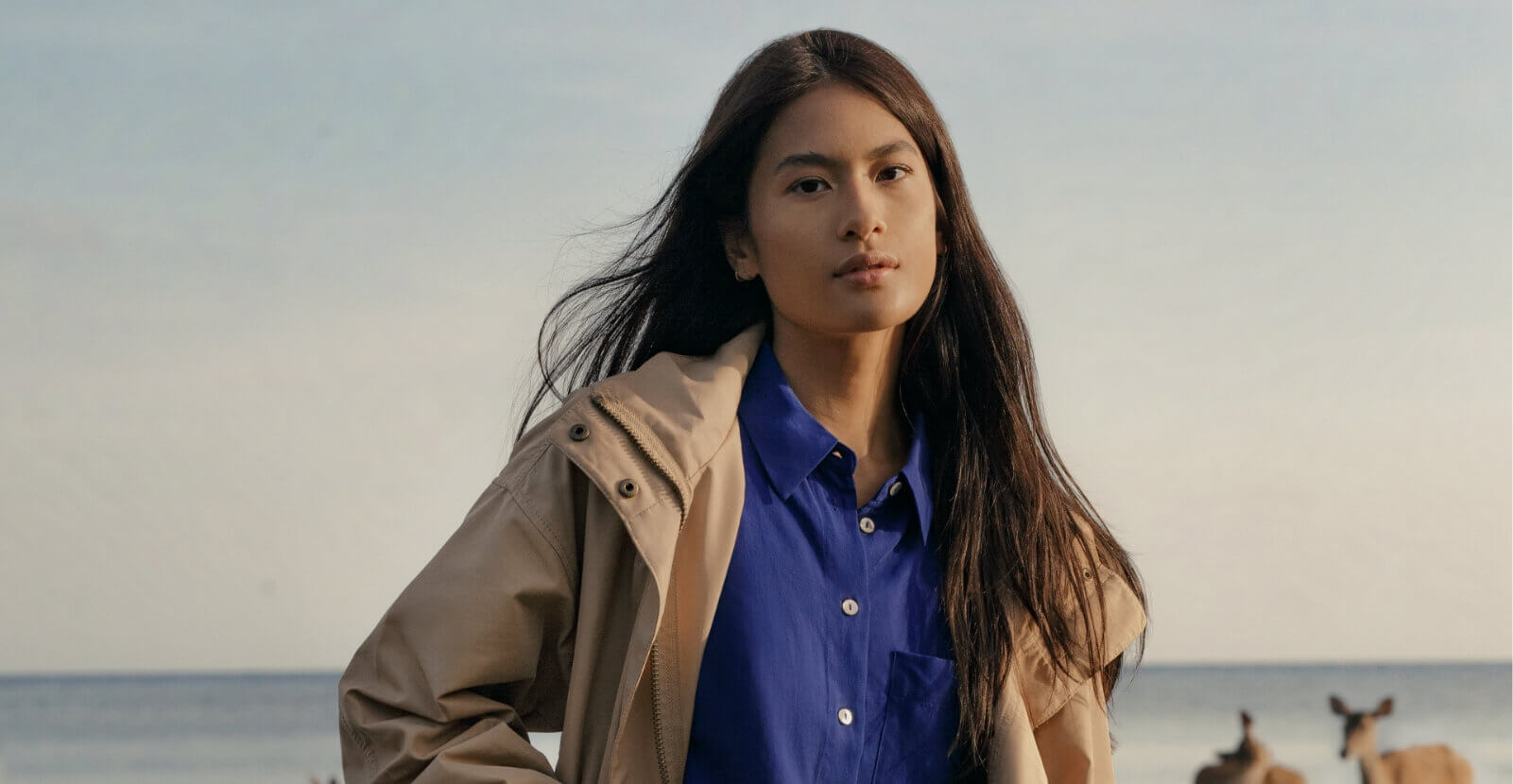
Driving Sustainable Consumption With Our Earth Edit Assortment
ZALORA aims to inspire a shift towards a more conscious fashion ecosystem by driving supply and demand for lower environmental impact and ethical products thanks to our Earth Edit selection.
By curating products that meet our credentials and enabling customers to shop our products according to their value, we offer them the opportunity to make more mindful choices when shopping without compromising fashionability or accessibility. In turn, we work closely with our brands to help them to understand customer expectations and preferences in relation to more conscious shopping and encourage them to provide products that have a lower impact on people and planet.
Since the launch of our Earth Edit range in 2020, we have steadily increased the number of participating brands to reach nearly 1,000 brand partners offering more than 500,000 unique products for our customers to make conscious shopping decisions. In 2024, our Earth Edit range represented 9.2% of our total sold units and 20% of our active customers purchased Earth Edit products.
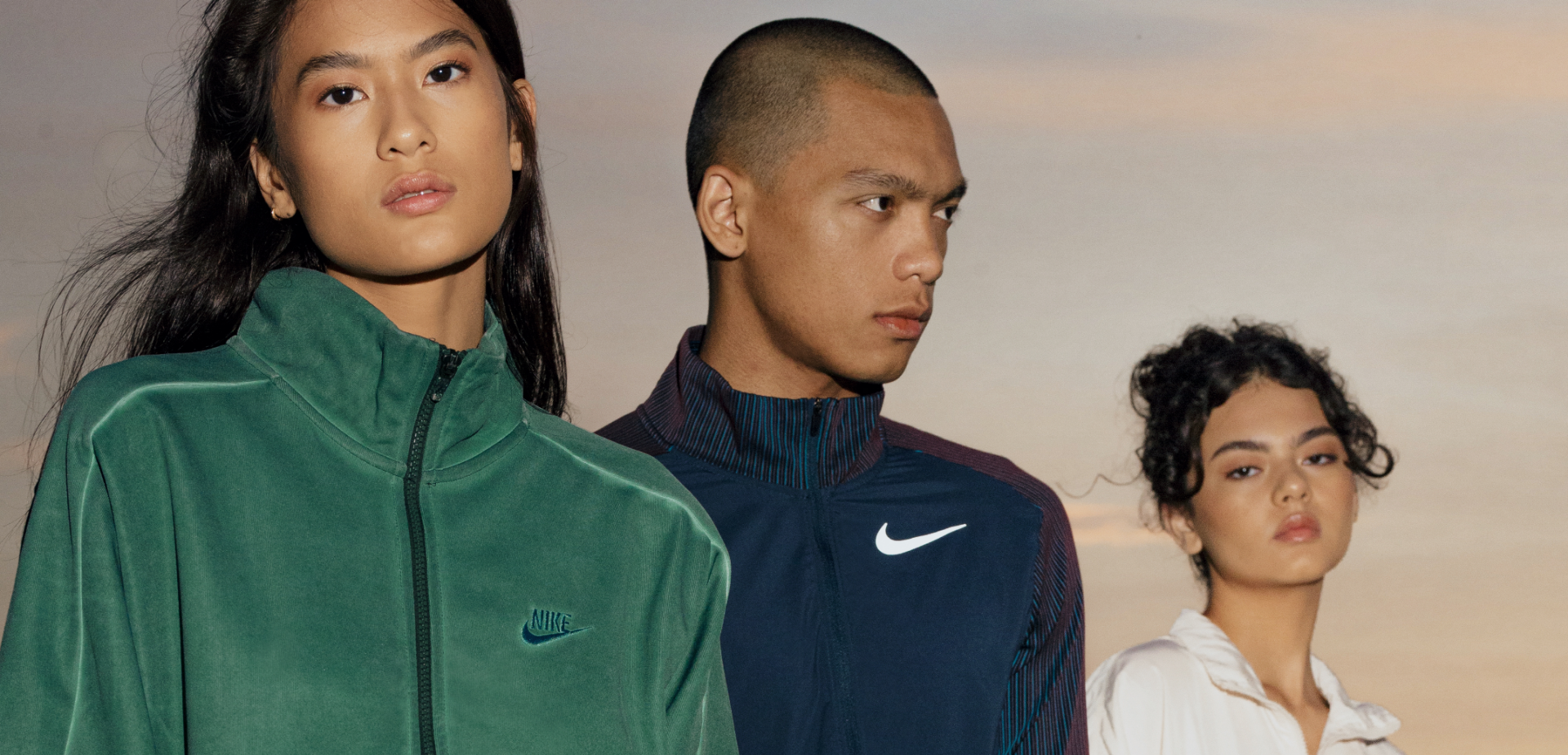
Extending The Life Of Products Through Take Back Solutions
Given our aim to kick-start a circular fashion movement in Southeast Asia, we understand that we not only have a responsibility to manage our direct impact, but also there was an opportunity to provide customers with the infrastructure to manage theirs. Our strategy in this respect is to encourage our customers to donate the apparel items that they want to give away and thus divert them from disposal.
We launched collaborations with organizations to offer our customers a take back solution for their used fabric items (of any brand), where collectively our partners provide support with the items collection, sorting, reselling, recycling, and upcycling so that our customers can give a second life to their used clothes.
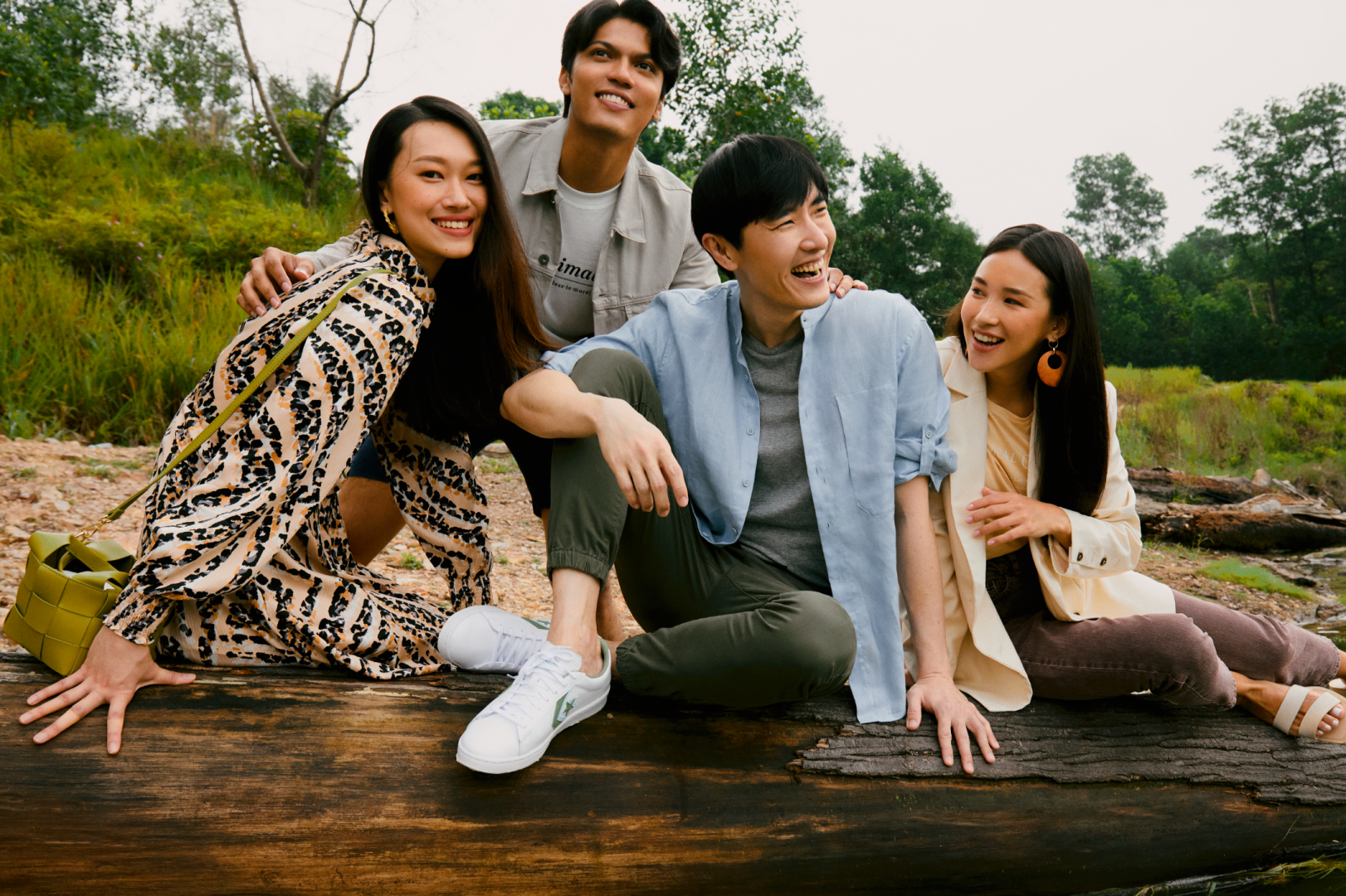
Clothes Re:newed Initiative
As part of our ambitious goal and commitment in kick-starting a circular fashion movement in Southeast Asia, we have collaborated with The Salvation Army (TSA) Malaysia, a well-established non-governmental organization (NGO), known for their expertise in processing clothes donation, for our customers to drop-off and donate their clothes, shoes, and bags, that are in good condition to those that might need it.
By providing an option for ZALORA customers to give their used items a second chance to someone else to love and wear, TSA helps to divert waste from landfills and reduce resource consumption via reuse or recycling. These donations will also help fund The Salvation Army’s other charitable causes and social programmes.
As a token of appreciation, ZALORA customers will be awarded with a small cashback bonus for their next purchase with ZALORA.
Snap & Drop Initiative
In collaboration with Life Line Clothing, a leading authority on zero waste textiles recovery in Asia Pacific, ZALORA aims to give donated apparels a second chance to be loved and worn or upcycled into new items.
Customers can drop off their apparels in easily accessible collection bins to be repurposed, reused, upcycled, or converted into raw materials for household items like gloves and tote bags. This program is part of ZALORA’s sustainability initiatives on promoting a more circular fashion economy to tackle climate change.
As a token of appreciation, ZALORA customers will be awarded with a small cashback bonus for their next purchase with ZALORA.
The initiative is now live in selected locations in Singapore & Malaysia, with other similar partnerships being explored throughout the Southeast Asian region.
Have a question about our packaging, or simply wish to contact us?


